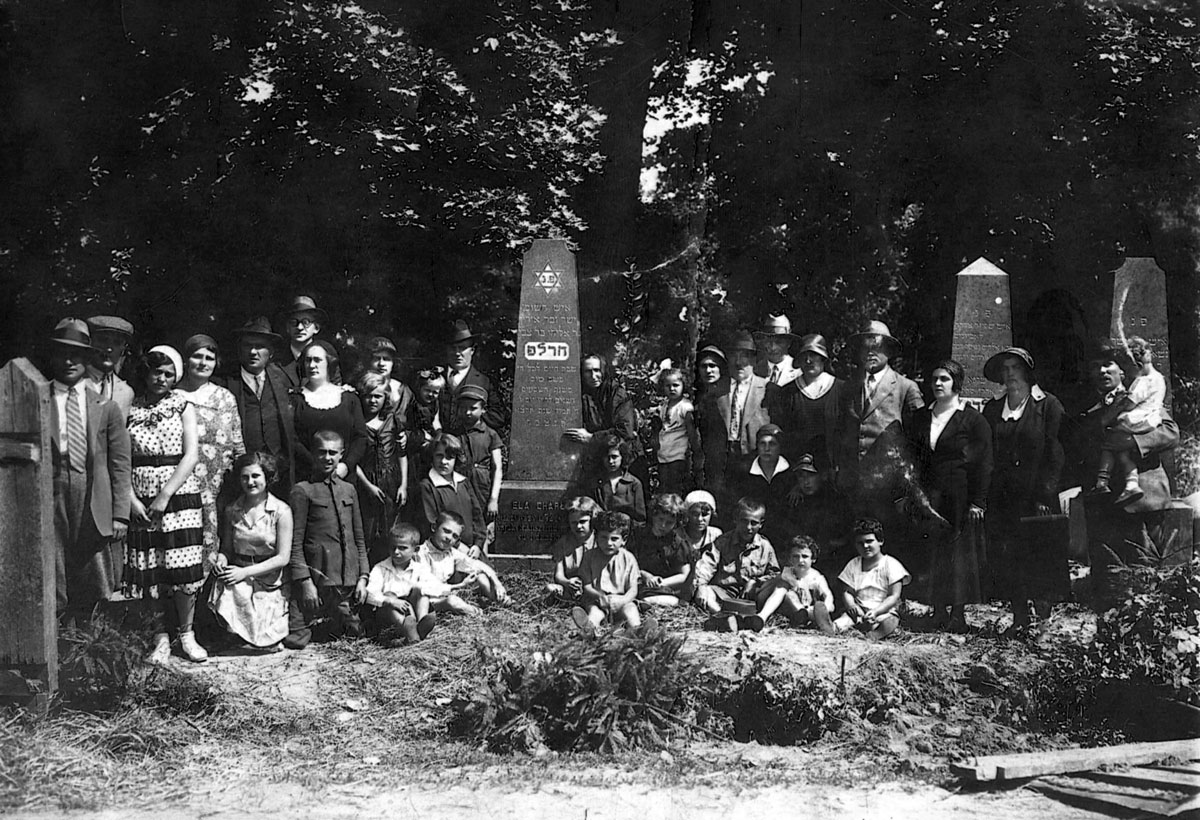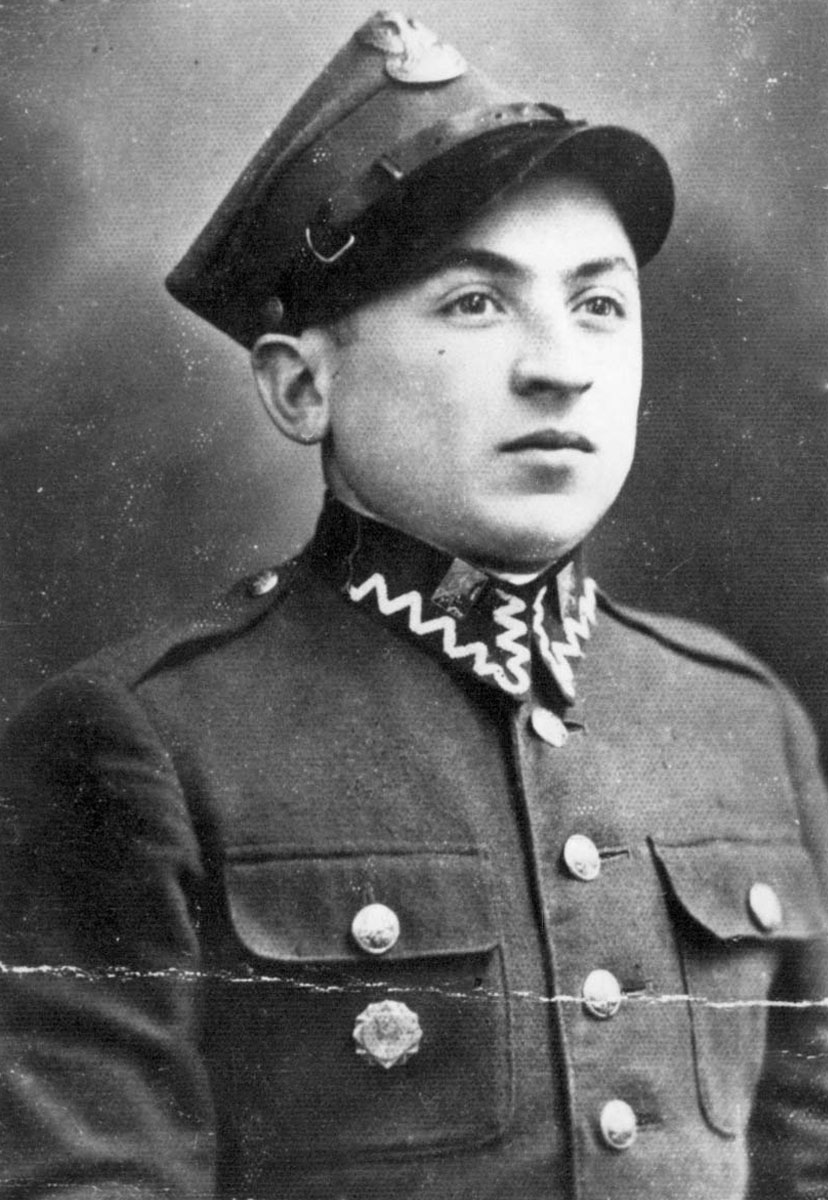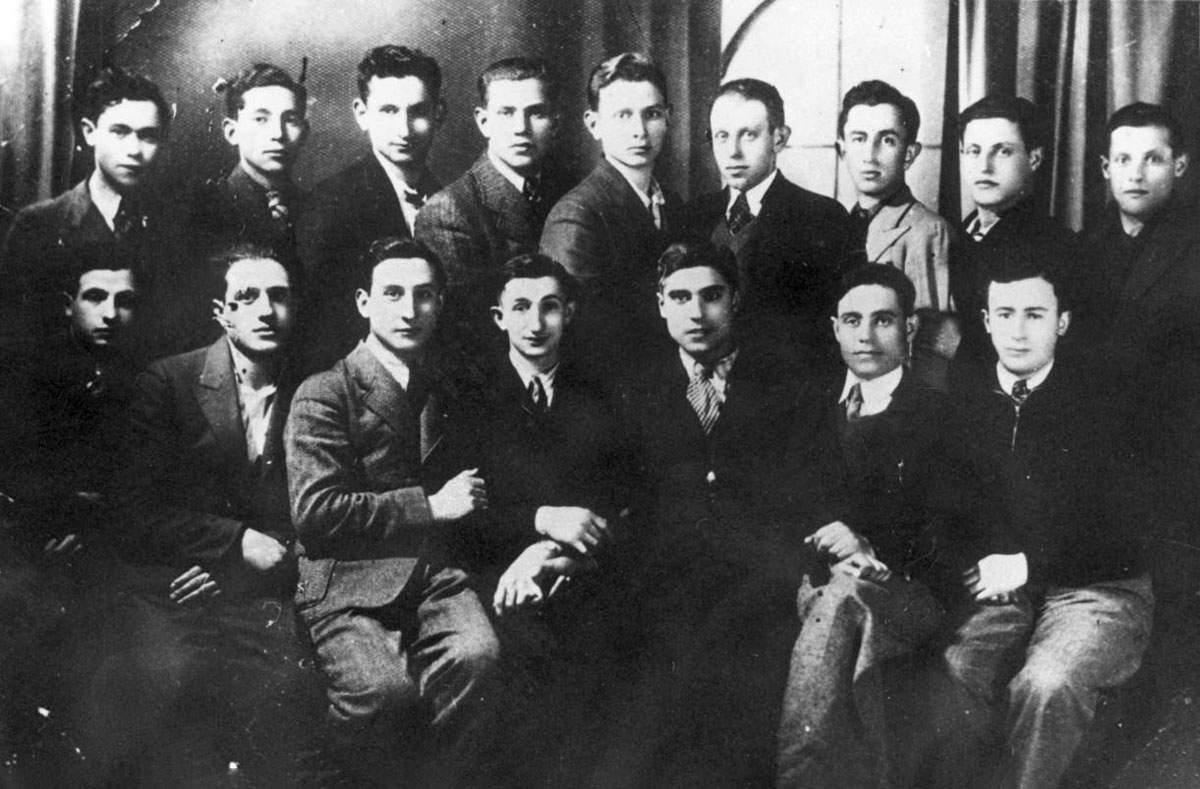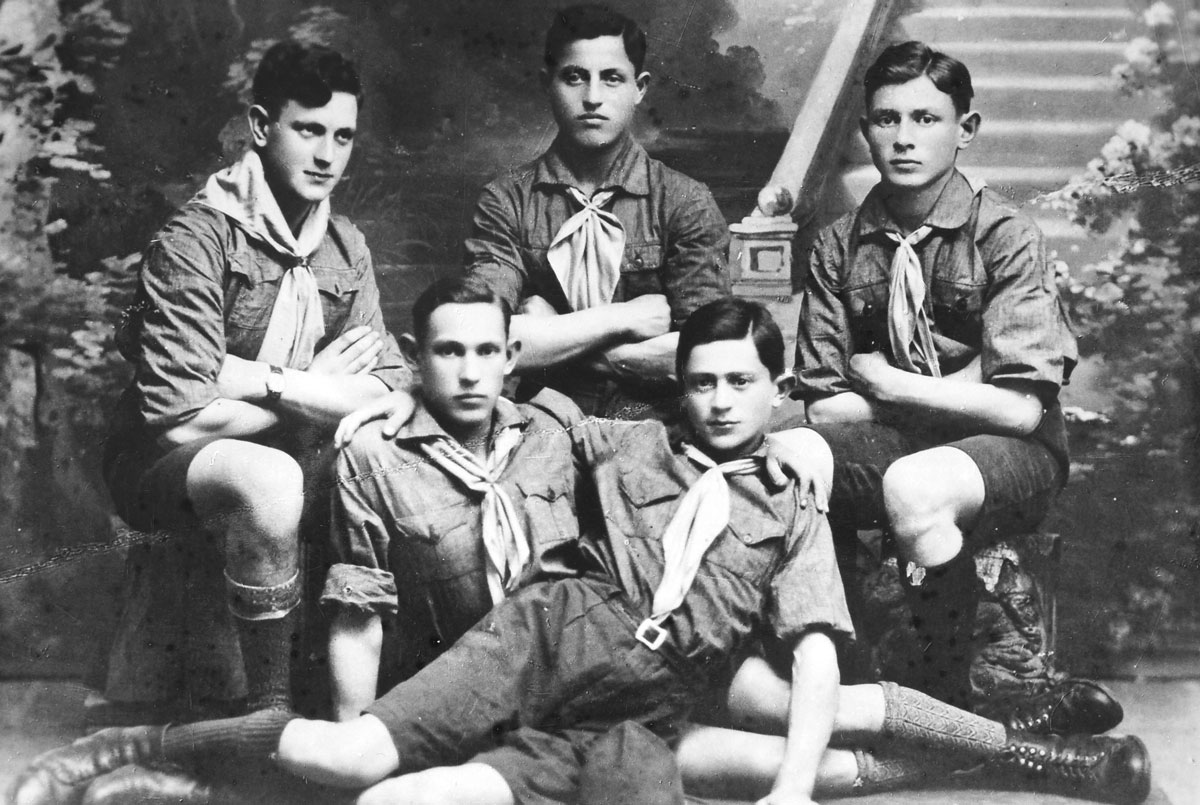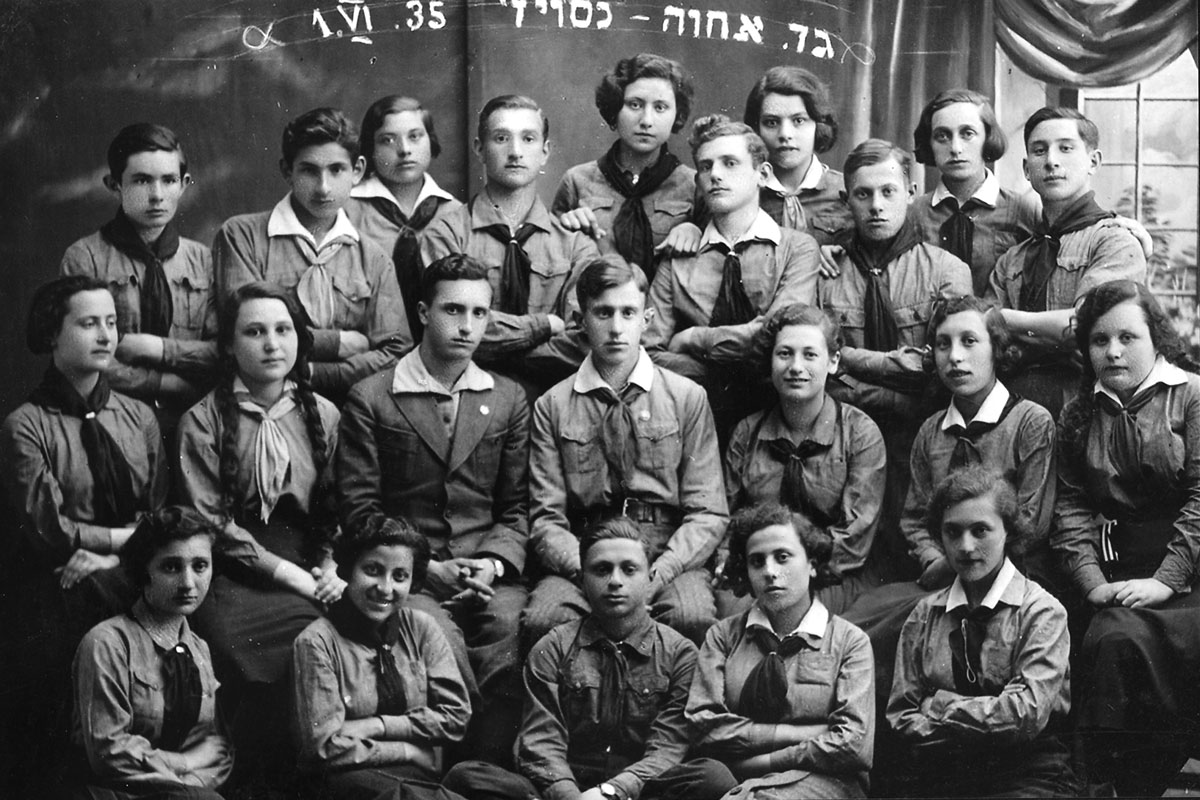Jews settled in Nieśwież at the beginning of the sixteenth century. They made a living from tenancies, trade and export to Russian cities. The local rulers protected them from Christians who wanted to control their economic activity. In the mid-seventeenth century, a Jewish community was established in the town, but it suffered during the 1648-1649 pogroms. By the end of the eighteenth century, the community had rehabilitated itself, and some thousand Jews lived there. The famous philosopher Shlomo Maimon lived in Nieśwież in the second half of the eighteenth century. In the mid-nineteenth century, a new synagogue was erected, which became known as the Great Synagogue. Towards the end of the century, there were nine small Batei Midrash (lit. houses of learning) in Nieśwież for artisans, including separate Batei Midrash for butchers, tailors, shoemakers etc. In the second half of the nineteenth century, the Jews of Nieśwież made a living as artisans, or in trade, in agricultural produce and otherwise. The Jews were active volunteers in the firemen’s union, and were prominent in the union’s wind orchestra.
Yad Vashem Photo Archives AO5205
Community, Education and Culture Between the Two World Wars
After World War I, the Nowogródek district, including the town of Nieśwież, were incorporated into independent Poland. At the same time, widespread Zionist activity began in the town. In addition to the veteran Zionist parties that had operated in the city since the end of the nineteenth century – “Poale Zion” and “Tzeirei Zion” – branches of the Zionist “Hamizrachi”, “Hapoel Hamizrachi” and “Hazionim Haclali’im” parties were established, as well as a branch of the Revisionist movement. A few years later, branches of the parties “Poale Zion Z. S.” (Socialist Zionists) and “Poale Zion Smol” were set up too. The movements “Hanoar Hazioni”, “Beitar”, and “Hehalutz Hadati” were also active in the town, as well as the Zionist women’s organization “Wizo Hatzeira”, and branches of the orthodox “Agudat Israel” and the socialist “Bund” parties. The Bund maintained youth and children’s movements – “Zukunft” (future) and “Skip”, and even published a children’s newspaper. Active within the “Hashomer Hatzair”, was a Jewish group with communist leanings, even though the Communist movement was outlawed in independent Poland. In 1930, this group was disassociated from “Hashomer Hatzair”.
Zionist groups maintained pioneer training collectives in the town, including “Gordonia”, which ran a library with some 150 members, “Freiheit” (Dror), which established the “Poale Zion Z. S.”, and “Hashomer Hatzair”, which was founded in the town in 1922, at first as a scouts movement, and later as a Zionist Socialist movement. Within ten years, there were more than 500 members in the Nieśwież branch, which maintained a vegetable garden and a carpentry workshop in the town, as part of their pioneer training. A branch of “Hehalutz” operated on behalf of the “Tzeirei Zion” party, and its members used a local Jew’s sawmill as a pioneer training site. In 1933, the “Hehalutz” movement in the town set up an artisan’s union called “Ha'oved” (the Worker).
In 1918, a Hebrew school was established in Nieśwież, on the initiative of the “Tzeirei Zion” party. That same year, the school was given an entire library by “Tzeirei Zion”, which established and ran the library. The school library grew over the years, and by the end of the 1930s, housed some 6,000 books. Lectures and literary evenings were held in the library’s reading room, and there were 2 further libraries in the town that belonged to parties and youth movements. In 1922, the Hebrew school joined the “Tarbut” chain, and a kindergarten was opened next door. In 1919, the “Poalei Zion Smol” party established a school named “Ber Borochov”, where studies were conducted in Yiddish.
The community maintained a Talmud Torah and Heders (religious schools), where general subjects were added to the curriculum. A general school also existed in the town, as did “Szabasówki”, a state school that was closed on Saturdays and Sundays, and most of whose pupils were Jewish. A few Jewish teenagers studied at the local state high school and at the Polish Teachers’ Seminar in the town.
In 1921, “Tzeirei Zion” started a drama class in Nieśwież, and the “Freiheit” (Dror) youth movement lent its auspices to branches of the “Maccabi” and “Hapoel” sports societies that were operational in the town.
As well as educational and welfare activities, the Nieśwież community also used its budget to maintain the synagogues, cemetery, Mikve (ritual bath), and ritual slaughter-house. Over the generations, Nieśwież was home to many renowned Rabbis and educators. The community Rabbi, Yerachmiel Zvi Burgman, retired in 1932, and his successor, Rabbi Yaakov Yitzhak Rabinowitz became the last Rabbi of the Nieśwież Jewish community. Rabbi Rabinowitz was murdered in the Shoah together with his congregants. The Zionist Rabbi, Yitzhak Davidowski, was also murdered in the Holocaust.
Economy, Welfare and Mutual Aid in Nieśwież
After World War I, the Jews of the community continued to work in trade, as factory owners and workers, and also as craftsmen. Some rented out orchards or grew vegetables. At the end of the 1920s, a cooperative society of Jewish vegetable growers was established in Nieśwież.
In 1922, a branch of the People’s Cooperative Bank opened, with the assistance of funds from the Joint Distribution Committee (JDC) in the US. The bank supplied credit to businessmen in the town, and it was run by representatives of the traders’ union that was set up at the beginning of the 1920s. In 1930, the small-time traders left the union and founded one of their own. Owners of small businesses were assisted by the Gemach (Jewish charity), which provided interest-free loans. The “Poalei Zedek” artisans’ organization had its own mutual aid fund, and the Zionist party “Poalei Zion” established and ran its own professional union.
After World War I, the Jewish community, its businesses and properties were rehabilitated with the assistance of the JDC, and relatives in the US. Additional assistance was provided by the Jewish mutual aid societies in the city and in Poland as a whole. Traditional charitable organizations renewed their activities, including those that arranged for visits to the sick and hospitality for visitors. The community also supported educational institutions and welfare projects, and paid the wages of community members who performed Jewish ritual duties.
The TOZ Society (Society for the Protection of Jewish Health in Poland) was active in Nieśwież in the 1930s. This society provided free medical care for the needy, children, babies and pregnant women, and ran children’s summer camps for poor families.
In 1920, the first democratic elections for the leadership of the Jewish community were held in Nieśwież. Yoel Rozowski was elected head of the community, and held this position until 1935. In the first elections for city council, held in 1927, the Jews won the majority of the seats, and were also elected for 2 out of 5 positions on the board of the municipality. In the 1932 elections, the nationalists won more votes, and the Jews became a minority presence in the city council.
In the second half of the 1930s, the Polish government and private organizations in Poland began to enact anti-Jewish economic measures. The government imposed high taxes on traders and small business owners, and encouraged Polish trade at the expense of other minorities in Poland. These measures, as well as the economic crisis in Poland and rising antisemitism served to worsen the economic status of the Jews of Nieśwież.
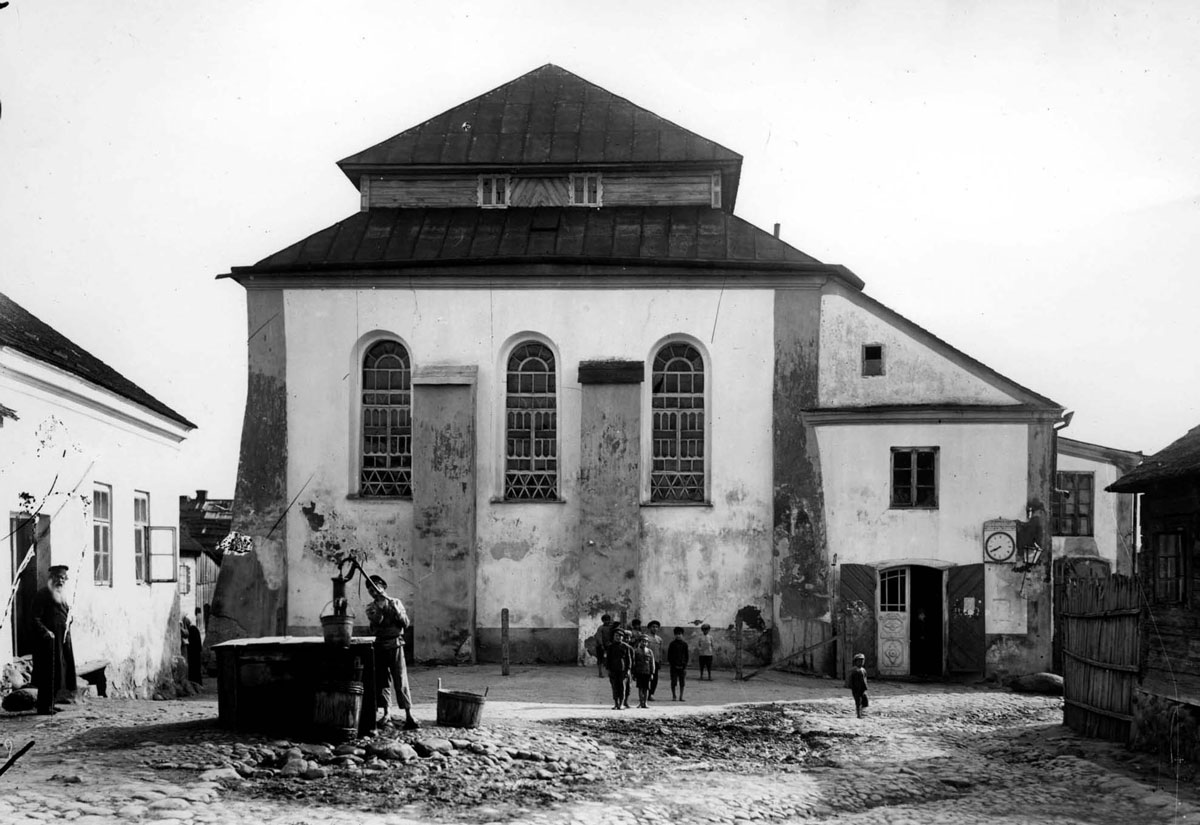

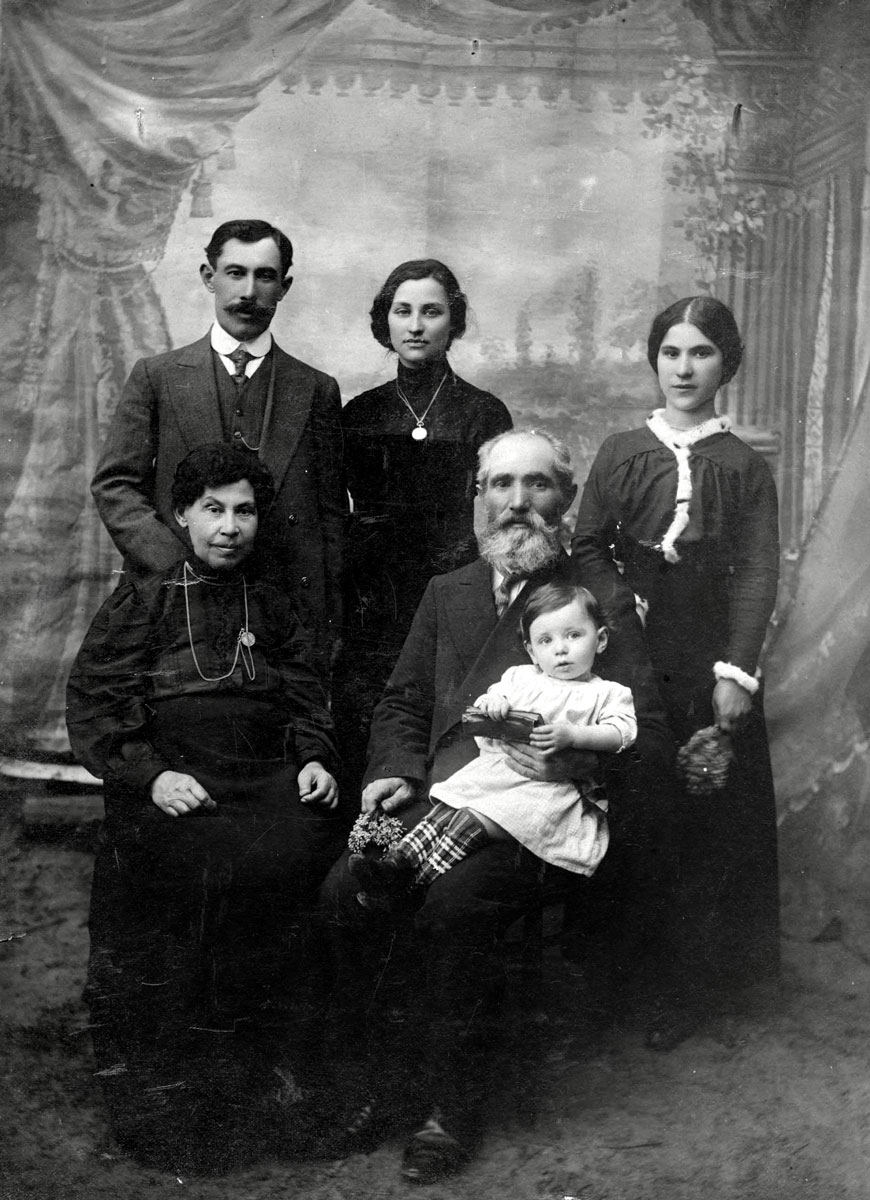
![The inscription on the reverse side of the photo reads: "Memories of Nieśwież. To Chaim [Landau] from Reuven Feinstein, the "Builder". Nieśwież, 20 July 1933, on the eve of the elections to the 18th [World Zionist] Congress".](https://www.yadvashem.org/sites/default/files/9786_21.jpg)
